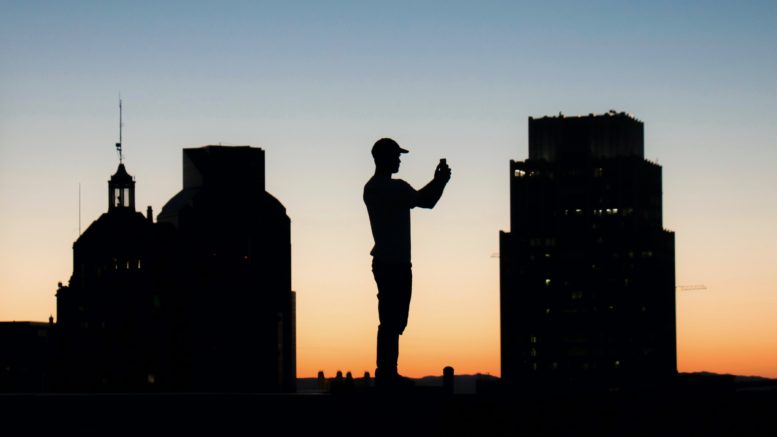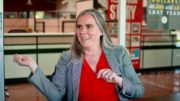The models and the funds are already there – if we step back from a narrow picture frame
By Waverly Hampton III

Pope Julius II paid a lot of money to get the ceiling of the Sistine Chapel painted. Michelangelo was not what one would consider a “starving artist.” That expression, along with its sister expression, “starving student,” always confused me. Why should someone have to starve to practice or master their craft?
I get the lesson that those terms try to instill: Sacrifice is required to achieve the life you want. Yet, there are basic needs we humans must have to live. We all know what they are, and what it costs to attain them— call it a cost of living. In the United States, and especially in California, there is a high cost of living. And, what is living without art?
You thought I was going off on a tangent, but what I was really doing was setting up that rhetorical question to get you, the reader, to think. Not my best set-up, but rhetoric is an art that takes practice, and practice takes time away from attaining basic needs, which is why I’m no Mark Twain. Although, I think even he would have a tough time in today’s economy. That’s because artists today are severely under-compensated for their work. Considering their contributions to our way of life, from internet videos and memes, to stories and stage productions, you would think the creator archetype would be comparable to that of the caregiver and compensated as such.
The artist plays an integral role in society. The artist acts as a mirror, so the rest of us may see our true selves and not be blinded by our egos. The artist makes themselves vulnerable, so the rest of us may experience spectrums of emotions and empathize with one another. The artist keeps us human, for if we only invested in engineers and scientists, we would surely all be cyborgs or jacked into the Matrix by now. And, art can be fun. And, what is living without fun?
I don’t want you to think too hard, because this is less of a think piece and more of a proposal. My pitch: Sacramento artists should receive a stipend, so that they can focus on their crafts.
In Sacramento, students of all backgrounds are offered plenty of aid for their living expenses. The result of funding for basic needs is that Sacramento State was among the top universities in the nation to increase its graduation rates in 2020. It is well-known that college graduates have a better standard of living. That’s what you ultimately get from providing students with income that allows them to focus on their studies and succeed. Now, let us keep the artists from starving.
This can be accomplished using an income distribution model similar to the one used in the Stockton universal basic income experiment. Stockton provided 125 residents with $500 a-month for 2 years. Sacramento can do something similar for its artists. Sacramento’s 2021-22 budget includes approximately $2.6 million allocated to support the creative economy. With that much money, 125 Sacramento artists could receive about $1,700 a month for one year, or more, if less of the general fund was allocated to the police department (Not rhetoric. Just facts.).
My point being that more artists could create more if they had their basic needs met. It took Michelangelo five years to paint that ceiling. Imagine what hundreds of artists could do in that time. That is the bigger picture, and it is one the City of Sacramento should want to commission.
Waverly Hampton III is a community volunteer, college student and recent candidate for Sacramento City Council.






I’m sorry but I don’t feel this is necessary or an appropriate usage of our tax money. There is already subsidized housing for artists downtown, which I think is more than enough. The author is making allusions to past master artists who needed wealthy patrons to do their work. The reality of today is that for an artist that resonates with the public, there are SEVERAL methods and avenues of finding funding or receiving payment, namely, Patreon, Gofundme, and kickstarter.
In terms of having avenues for selling or distributing their art, there is a vast array of shops online (i.e. Etsy, ebay, Amazon) not to mention new spaces such as creating NFTs. What the author is proposing will only propagate more art, not necessarily anything of high quality or of resonance to the community. With the ease of being able to market and sell art nowadays, the onus is on the artist to calibrate their works to find an audience that will support it, it is not my responsibility as a tax payer to fund obscure or mediocre works.
We have extremely pressing problems in Sacramento and CA now. We have a homeless and mental health epidemic, mass un and underemployment, businesses closed due to Covid, and underfunded pension liabilities. Funding artists who can’t make a stable career on their own is a problem that does not reach the level of any of the things I’ve mentioned. The current state budget windfall is not a continued guarantee, if anything, it might be the calm before the storm preceding another bankruptcy. Let’s use our tax money to solve real problems instead of engaging in unnecessary social engineering.
Just because you think it is more than enough doesn’t mean it is. Just because you don’t think an artist can’t make a stable career that art shouldn’t be created is sad. Also online shops like Etsy, ebay, and Amazon take a large portion of art and when artists have to adjust prices for gauging patrons like yourself tend to complain about prices.
You cannot compare the unhoused problem to funding artists.
You can not assume YOU are funding mediocre works.
Art uplifts society. Look around Sacramento and you will beautiful architecture, murals, park designs, programs that all stem from art. It is not simply selling art on Etsy.
I would suggest you go to Second Saturday (an event where artists “calibrate their works to find an audience that will support it…”) but I am sure you will just bring down the vibe.
Yes, support artists, many need help to prevent homelessness. This is a creative and compassionate solution!
Orange’s argument is absolutely correct. Good artists willing to work hard have many avenues other than sucking off the taxpayer teat. We have too many others draining us dry.